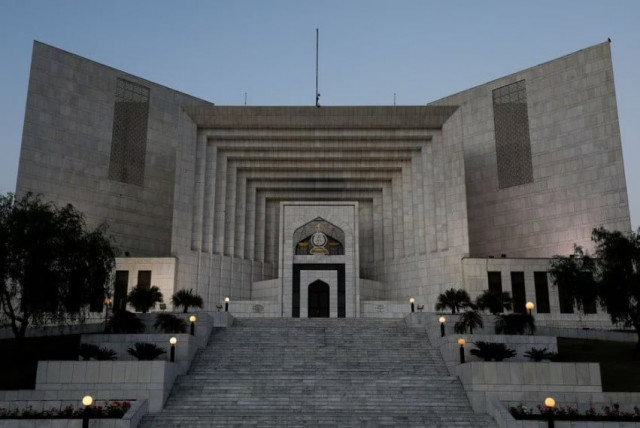SC wants missing persons’ report
Wonders how commission issues production orders without knowing detention details

The Supreme Court has directed the Commission of Inquiry on Enforced Disappearances to submit, within ten days, a comprehensive report detailing all orders issued to law enforcement agencies (LEAs) for the production of missing persons.
Additionally, the court has appointed renowned lawyer Faisal Siddiqi to assist in this matter.
A three-member SC bench, led by Chief Justice of Pakistan (CJ) Qazi Faez Isa, resumed hearings on Wednesday concerning petitions regarding enforced disappearances, including the alleged abduction of various PTI leaders following the May 9 incidents.
During proceedings, the CJ inquired if the petitioners were content with the performance of the missing persons’ commission. In response, the petitioners and their legal representatives expressed dissatisfaction.
Chief Justice Isa queried the commission’s registrar, Khalid Naseem, present in court, about the commission's leadership and its head’s age. The registrar informed the court that former SC judge Javed Iqbal, 77, has led the commission since its inception in 2011.
Justice Isa also questioned if commission members were receiving salaries without actively engaging in work. Justice Muhammad Ali Mazhar, another bench member, further asked about the frequency of the commission's sessions and the number of recovered missing persons.
The registrar indicated that the commission retrieved 46 individuals in December 2023 and clarified that joint investigation teams (JITs) formed by the commission involve officials from covert agencies.
He also noted that retired SC and high court judges serving in the commission receive salaries equivalent to those of their active counterparts.
CJ Isa raised concerns about the commission members receiving salaries despite already receiving pensions. He pointed out that a retired judge engaged by the government does not receive payment, and there is no mention of remuneration in the commission's SRO—Statutory Regulatory Order.
Justice Muhammad Ali Mazhar highlighted that while the commission was initially established for six months, its term was extended, allowing its continued operation.
The bench questioned how the commission could issue production orders for missing persons without knowledge of their whereabouts. Justice Mazhar emphasized that knowing the detaining agency is crucial for issuing such orders.
"Despite this, the commission has resolved ten thousand cases," he added.
CJ Isa stressed the need for a permanent solution and ordered relevant authorities to present a comprehensive report on production orders issued since the commission's inception.
When Barrister Aitzaz Ahsan suggested a new, high-powered commission, CJ Isa acknowledged the existing commission's work.
"We currently seek complete details of missing persons and their families who approached the commission, including their names and addresses. Based on this information, we may consider urging the government to establish a new commission," he stated.
The bench disagreed with the proposal of including serving judges in the commission, citing their existing caseload and the commission's full-time commitment. The court adjourned for two weeks."



















COMMENTS
Comments are moderated and generally will be posted if they are on-topic and not abusive.
For more information, please see our Comments FAQ